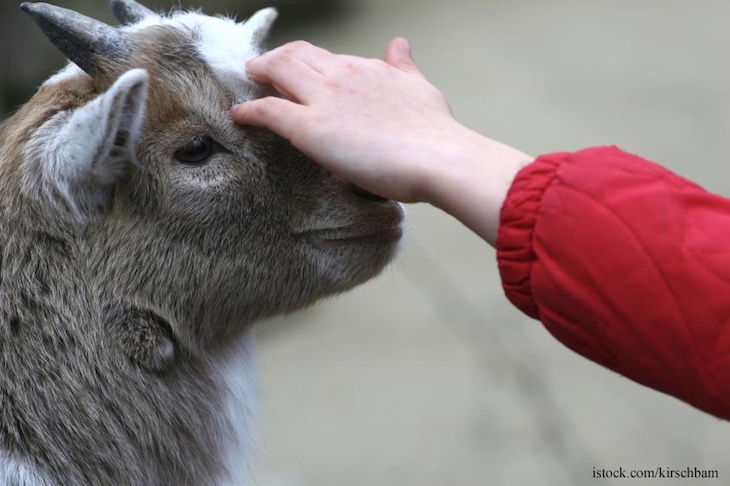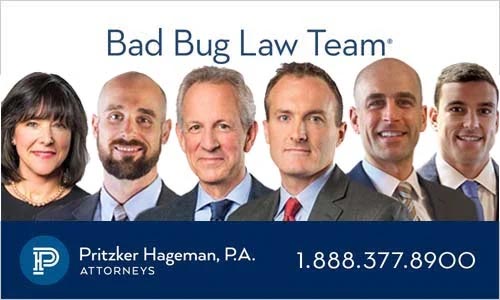With county and state fairs occurring around the country, especially after many closed last year because of COVID-19, parents need to know about petting zoos and the danger they can present. Since it’s petting zoo time, do you know how to protect your kids?

Children love small animals, and petting zoos are magnets to many of them. Many state fairs and county fairs offer these attractions.
Unfortunately, these animals can harbor pathogenic bacteria that can make kids very sick. The most dangerous is E. coli bacteria, which occur naturally in the guts of ruminant animals such as cows, goats, and sheep. The animals themselves do not get sick, but they shed the bacteria in their feces, where it can contaminate the animals themselves and their environment.
The CDC states that from 2010 to 2015, there were 100 outbreaks of illness in people that were linked to animals in public settings like petting zoos, fairs, and educational farms. As a result of these outbreaks, many fairs have stopped offering petting zoos.
But these attractions are still numerous. And children under the age of five are the most likely to become seriously ill with these infections.
Kids can get sick simply by touching an animal and then touching their mouths. In addition, the bacteria in these zoos can aerosolize, which means it is floating in the air, and can land on your child’s hands or face. In addition, if food or beverages are brought into the venue, they can become contaminated.
To protect yourself and your kids, there are some steps you can take if you choose to visit one of these attractions. First, watch your kids carefully. Do not let them put their hands or fingers into their mouths in the attraction.
Second, find out where handwashing stations are located. Wash your hands and your child’s hands after touching anything in the areas and the animals themselves. Wash your hands after leaving the area, even if you didn’t touch the animals. Wash your hands even if you wore gloves. It only takes 10 E. coli bacteria to make you very sick.
If soap and clean running water aren’t available, an alcohol-based hand sanitizer that contains at least 60% alcohol is second best. But make sure to wash hands with soap and running water as soon as possible.
Third, never bring food or drink into these venues. Don’t share your food with the animals. And don’t drink raw unpasteurized products. Some of these exhibits offer raw milk, cheese, cider, or juice for sale. Those items have caused outbreaks and serious illness in the past.
Fourth, leave items such as strollers, cups, toys, and pacifiers outside the exhibit. Don’t let kids sit or play on the ground in animal areas. And don’t let your kids put their fingers or objects near an animal’s mouth, even if the animal seems friendly.
Now that it’s petting zoo time, you can protect your family and enjoy a safe and fun outing.

If you or a loved one have been sickened with bacterial infection such as E. coli after visiting a petting zoo, please contact our experienced attorneys for help at 1-888-377-8900 or 612-338-0202.




